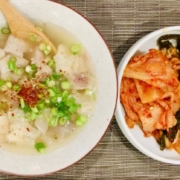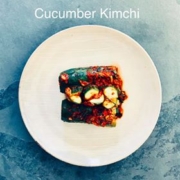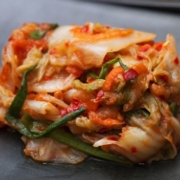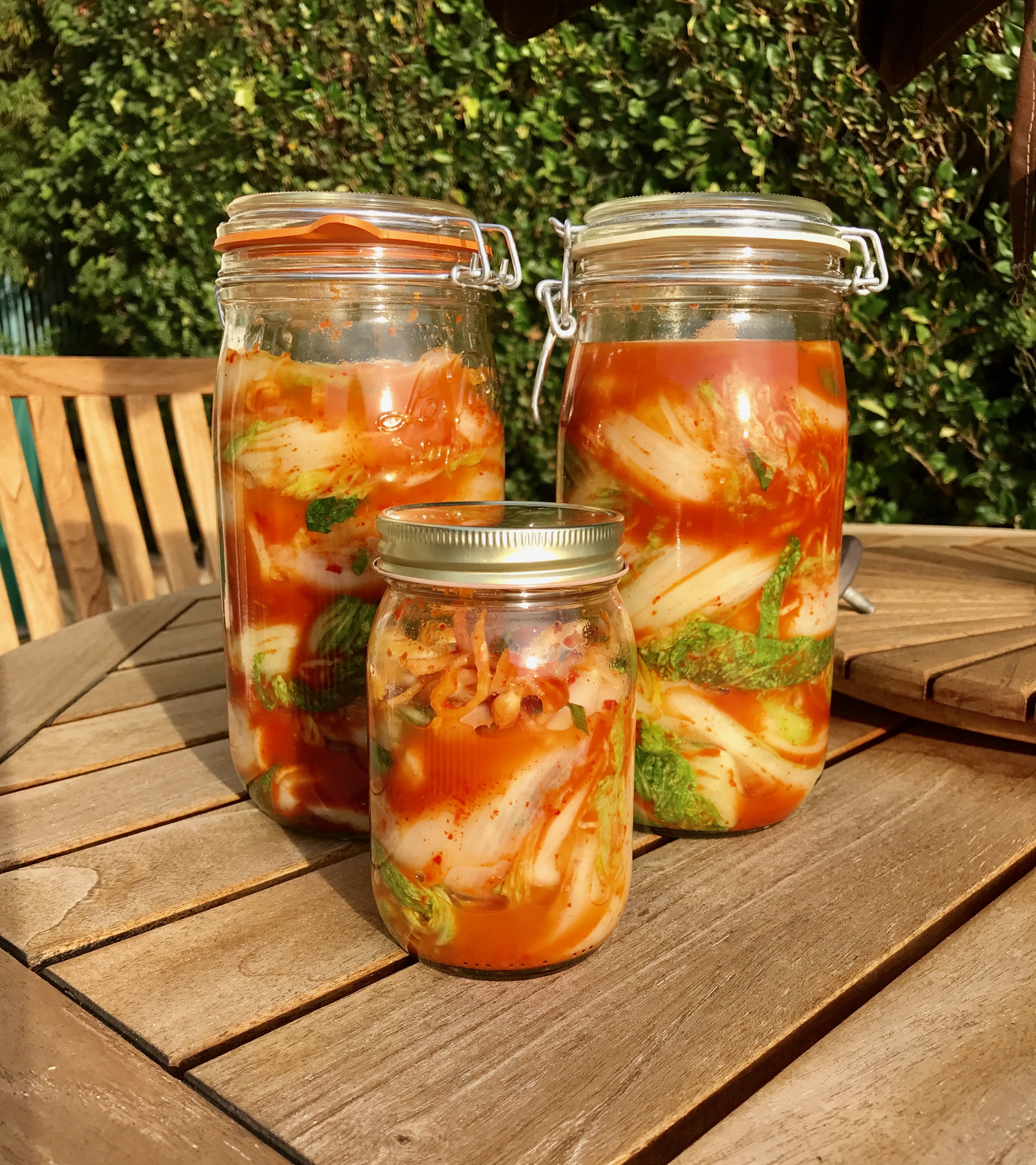Are you familiar with the term ‘functional foods’?
All foods ideally contain some nutritional value, but the ones that are considered ‘functional’ go beyond basic nutrition and can provide specific health benefits, especially if they’re consumed regularly.
Think oats for their cholesterol-lowering fiber or yogurt for its gut balancing probiotic bacteria. These are a couple of the most well-known functional foods in the US.
In my opinion, kimchi may be the #1 functional food around, because it has so many unique and diverse health benefits, packs in so much nutrition, and tastes amazing!
A community member recently responded that he believes bone broth to be the best functional food out there, after he read my last newsletter where I named kimchi as my favorite functional food. I want to extend my gratitude to him for reaching out to me, I truly appreciate his email!
And while I do agree that bone broth is definitely nutritious and can be healing for certain health issues, I still feel that kimchi has more overall health benefits to human bodily systems (digestive, cardiovascular, immune/inflammatory, neurochemistry, dermatological, metabolic and more), higher nutritional value, and more to offer as a functional food… and science confirms it.
So let’s do a quick comparison of the two and see how kimchi and bone broth stack up against each other.
What’s Kimchi?
If you aren’t already familiar with kimchi, it’s a fermented vegetable dish that originates from Korea. It’s Korea’s national food and is happily eaten by most Koreans every single day.
Kimchi can be made from many different vegetables, but the most common one is Baechu-kimchi, which is napa cabbage kimchi. The veggies are combined with salt, red pepper powder, garlic, and other spices. Sometimes seafood or fermented seafood pastes are included for additional flavor. Then the kimchi is left to ferment for days to weeks to months, depending on your needs and how fast you eat it.
The result is a tangy, flavorful side dish or condiment that pairs especially well with rice and soups. The texture of the veggies starts out crunchy and becomes softer as the fermentation process continues.
Kimchi Key Benefits
- Loaded with Probiotics – One of the main benefits of kimchi is that it’s loaded with billions of lactic acid bacteria.
- Postbiotics are important too – these are organic acids and metabolic end products of the lactic acid bacteria in kimchi that are now being discovered to be beneficial to human health.
- Packed with Nutrients – Kimchi is high in lots of different vitamins, minerals, live enzymes, antioxidants, and phytochemicals, making it one of the most nutrient-dense foods available.
- High in Fiber – The veggies used in kimchi are high in fiber, which gut bacteria love to eat and produce short chain fatty acids (SCFA’s) from, and these acids have their own unique health benefits.
- Environmentally-Friendly – Because it requires no fire, electricity or gas to produce (only electricity for refrigeration to store it).
- Vegan/Plant-Based – Just leave out any seafood ingredients when making it or check ingredients when purchasing it pre-made.
- Delicious – I can taste all 5 flavor profiles in kimchi… tangy, sweet, sour, salty, and umami. This makes it so satisfying to eat!
What’s Bone Broth?
Bone broth has become super trendy in the last decade, and in the past you would have had to make it from scratch to enjoy it. But today, you’ll find many delicious commercially produced bone broth in the grocery store. Bone and veggie based broths have been a dietary staple in many cultures around the world for centuries at least! And for good reason – they’re super comforting to both body and spirit.
It’s made by simmering bones (sometimes along with veggies & spices) for many hours in order to extract the maximum amount of nutrients from the ingredients.
The result is a gelatinous broth with a mild flavor that’s usually drank warm or hot, either by itself or as a base for soups and stews.
Bone Broth Key Benefits
- Best for Collagen – Helps soothe and heal the gut (especially gut permeability issues) and keeps skin and joints supple.
- Rich in Minerals – Like calcium, magnesium, phosphorus, silicon, and sulphur – all necessary in proper amounts for optimal health and hundreds of bodily processes.
- Low in calories – Averaging at 45 calories per cup of bone broth, mainly from protein. Zero calories from carbs. Fat calories depends on if the meat or bone marrow is included in the bone broth preparation.
- High in proteins – Protein level is around 9 grams per 1 cup of bone broth (usually 0 grams of protein and 3 grams of carbs in vegetable broth), so it’s great for building muscles, connective tissue, intestinal mucosa, skin and joint health.
- Easy to digest – Because it’s liquid and low in fiber, bone broth and the nutrients it contains can be easily and quickly absorbed by the body.
Why Kimchi Is My #1 Functional Food
Both kimchi and bone broth have super powers as a functional food, but I find that kimchi throws a bigger punch in overall value for your health. Kimchi is delicious, highly nutritious, and loaded with enzymes, probiotic bacteria and organic acids that aren’t found in bone or veggie broth.
If you’re torn on whether to add kimchi or bone broth to your diet, why not enjoy them both?! That’s what I do! My favorite bone broth is Korean oxtail soup with the knuckles. And I can hardly pick a favorite type of kimchi, because there are so many different delicious ones to choose from. Cucumber, mustard greens, radish, napa, white… I love them all!
But if it’s your first time trying kimchi or you have some gut issues, start with cucumber kimchi. Cucumbers have low levels of fermentable carbohydrates (FODMAPs) and won’t cause gas or bloating like napa cabbage kimchi can for some individuals.
For my cucumber recipe you can find it on my instagram feed @drsusanne! Don’t forget to swipe to the left for the full recipe and photos. And if you don’t already, follow me on instagram. I post awesome health and lifestyle info for the whole family!
Kimchi will always have a special place in my heart. It’s a big part of my Korean heritage and I associate many happy memories with making and enjoying it with my friends and family. But beyond this, kimchi just kicks butt all around!
To your most vibrant life,
Dr. Susanne






 kelly-sikkema
kelly-sikkema
